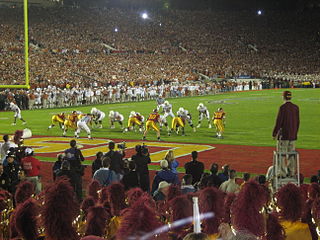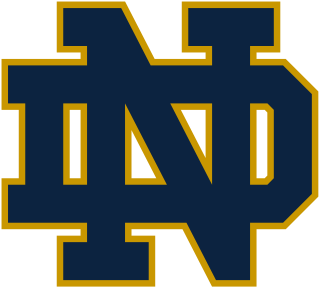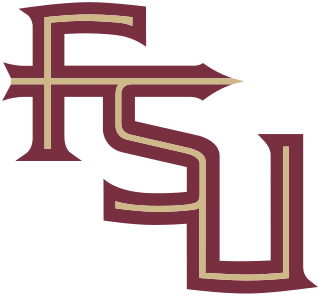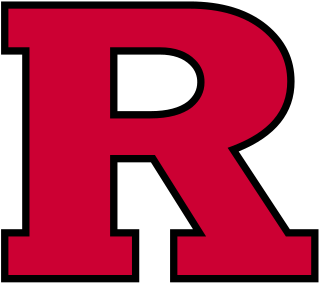Related Research Articles

College football refers to gridiron football played by teams of student athletes. It was through college football play that American football rules first gained popularity in the United States.

Douglas Richard Flutie is an American former football quarterback who played professionally for 21 seasons. He played 12 seasons in the National Football League (NFL), eight seasons in the Canadian Football League (CFL), and one season in the United States Football League (USFL). Flutie played college football for the Boston College Eagles, where he won the Heisman Trophy in 1984 amid a season that saw him throw the game-winning touchdown pass in the final seconds against the Miami Hurricanes. He chose to begin his professional career with the USFL's New Jersey Generals; his unavailability to NFL teams resulted in him being selected 285th overall by the Los Angeles Rams in the 11th round of the 1985 NFL Draft, the lowest drafting of a Heisman winner. After the USFL folded, Flutie spent his first four NFL seasons with the Chicago Bears and the New England Patriots.

In North America, a bowl game, or simply bowl, is one of a number of postseason college football games that are primarily played by teams belonging to the NCAA's Division I Football Bowl Subdivision (FBS). For most of its history, the Division I Bowl Subdivision had avoided using a playoff tournament to determine an annual national champion, which was instead traditionally determined by a vote of sports writers and other non-players. In place of such a playoff, various cities across the United States developed their own regional festivals featuring postseason college football games. Prior to 2002, bowl game statistics were not included in players' career totals. Despite attempts to establish a permanent system to determine the FBS national champion on the field, various bowl games continue to be held because of the vested economic interests entrenched in them.

Elisha Archibald Manning III is an American former professional football player who was a quarterback in the National Football League (NFL) for 13 seasons, primarily with the New Orleans Saints. He played for the Saints from 1971 to 1982 and also had brief stints with the Houston Oilers and Minnesota Vikings. In college, he played for the Ole Miss Rebels football team at the University of Mississippi and was inducted into the College Football Hall of Fame in 1989. Manning is the patriarch of the Manning football dynasty, having preceded sons Peyton and Eli as a successful college and NFL quarterback.

Richard Marvin Butkus was an American football linebacker, sports commentator, and actor. He played football for the Chicago Bears of the National Football League (NFL) from 1965 to 1973. He was invited to eight Pro Bowls in nine seasons, named a first-team All-Pro six times, and was twice recognized by his peers as the NFL's Defensive Player of the Year. Butkus was renowned as a fierce tackler and for the relentless effort with which he played. He is widely regarded as one of the greatest and most intimidating linebackers in professional football history.

NCAA Division I (D-I) is the highest level of intercollegiate athletics sanctioned by the National Collegiate Athletic Association (NCAA) in the United States, which accepts players globally. D-I schools include the major collegiate athletic powers, with large budgets, more elaborate facilities and more athletic scholarships than Divisions II and III as well as many smaller schools committed to the highest level of intercollegiate competition.

An exhibition game is a sporting event whose prize money and impact on the player's or the team's rankings is either zero or otherwise greatly reduced. In team sports, matches of this type are often used to help coaches and managers select and condition players for the competitive matches of a league season or tournament. If the players usually play in different teams in other leagues, exhibition games offer an opportunity for the players to learn to work with each other. The games can be held between separate teams or between parts of the same team.

The Notre Dame Fighting Irish football team is the intercollegiate football team representing the University of Notre Dame in Notre Dame, Indiana, north of the city of South Bend, Indiana. The team plays its home games at the campus' Notre Dame Stadium, which has a capacity of 77,622. Notre Dame is one of four schools that competes as an Independent at the National Collegiate Athletic Association (NCAA) Football Bowl Subdivision (FBS) level; however, they play five games a year against opponents from the Atlantic Coast Conference (ACC), of which Notre Dame is a member in all other sports except ice hockey.

Edward Thomas McCaffrey, Jr. is an American football coach and former wide receiver who played in the National Football League (NFL) for thirteen seasons. McCaffrey played college football for Stanford University, where he earned first-team All-American honors. He entered the 1991 NFL Draft, and was selected by the New York Giants in the third round with the 83rd overall selection. He played for the Giants from the 1991 through 1993 seasons, for the San Francisco 49ers in 1994, and for the Denver Broncos from 1995 to 2003.

Desmond Kevin Howard is an American former football wide receiver and return specialist who played in the National Football League (NFL) for 11 seasons. He played college football for the Michigan Wolverines, where he won the Heisman Trophy as a senior, and was selected fourth overall in the 1992 NFL Draft by the Washington Redskins. Howard spent most of his career on special teams as a return specialist and holds the NFL single season record for punt return yardage. With the Green Bay Packers, Howard was named Most Valuable Player of Super Bowl XXXI after returning a kickoff for a 99-yard touchdown, the longest return in Super Bowl history at the time. To date, he is the only special teams player to receive the award. He was inducted to the College Football Hall of Fame in 2010.
The history of American football can be traced to early versions of rugby football and association football. Both games have their origin in multiple varieties of football played in the United Kingdom in the mid-19th century, in which a football is kicked at a goal or kicked over a line, which in turn were based on the varieties of English public school football games descending from medieval ball games.

The Florida Gators football program represents the University of Florida (UF) in American college football. Florida competes in the Football Bowl Subdivision (FBS) of the National Collegiate Athletic Association (NCAA) and the Eastern Division of the Southeastern Conference (SEC) They play their home games in Steve Spurrier-Florida Field at Ben Hill Griffin Stadium on the university's Gainesville campus.

The Florida State Seminoles football team represents Florida State University in the sport of American football. The Seminoles compete in the NCAA Division I Football Bowl Subdivision (FBS) of the National Collegiate Athletic Association (NCAA) and the Atlantic Coast Conference (ACC). The Seminoles previously competed as part of the ACC Atlantic Division. The team is known for its storied history, distinctive helmet, fight song, colors, and many other traditions associated with the school.

The Navy Midshipmen football team represents the United States Naval Academy in NCAA Division I FBS college football. The Naval Academy completed its final season as an FBS independent school in 2014, and became a single-sport member of the American Athletic Conference beginning in the 2015 season. The team is currently coached by Brian Newberry, who was promoted in 2022, following his stint as the Midshipmen defensive coordinator. Navy has 19 players and three coaches in the College Football Hall of Fame and won the college football national championship in 1926 according to the Boand and Houlgate poll systems. The 1910 team also was undefeated and unscored upon. The mascot is Bill the Goat.

The Alabama Crimson Tide football program represents the University of Alabama in the sport of American football. The team competes in the Football Bowl Subdivision (FBS) of the National Collegiate Athletic Association (NCAA) and the Western Division of the Southeastern Conference (SEC). The team's head coach is Nick Saban, who has led the Tide to six national championships over his tenure. The Crimson Tide is among the most storied and decorated football programs in NCAA history. Since beginning play in 1892, the program claims 18 national championships, including 13 wire-service national titles in the poll-era, and five other titles before the poll-era. From 1958 to 1982, the team was led by Hall of Fame coach Paul "Bear" Bryant, who won six national titles with the program. It was not until 2009 that an Alabama player received a Heisman Trophy, when running back Mark Ingram II became the university's first winner. In 2015, Derrick Henry became the university's second Heisman winner. The Crimson Tide won back to back Heisman trophies in 2020 and 2021, with DeVonta Smith and Bryce Young.

The Rutgers Scarlet Knights football team represents Rutgers University in the Football Bowl Subdivision (FBS) of the National Collegiate Athletics Association (NCAA). Rutgers competes as a member of the East Division of the Big Ten Conference. Prior to joining the Big Ten, the Scarlet Knights were a member of the American Athletic Conference from 1991 to 2013. Rutgers plays its home games at SHI Stadium, in Piscataway, New Jersey. The team is currently led by head coach Greg Schiano. The Rutgers Scarlet Knights football team is notable for playing in the first ever intercollegiate football game in 1869, in which the Rutgers Scarlet Knights defeated the Princeton Tigers by a score of 6–4.
The NCAA Division I Football Bowl Subdivision (FBS), formerly known as Division I-A, is the highest level of college football in the United States. The FBS consists of the largest schools in the National Collegiate Athletic Association (NCAA). As of the 2023 season, there are 10 conferences and 133 schools in FBS.

American football, also known as gridiron football, is a team sport played by two teams of eleven players on a rectangular field with goalposts at each end. The offense, the team with possession of the oval-shaped football, attempts to advance down the field by running with the ball or passing it, while the defense, the team without possession of the ball, aims to stop the offense's advance and to take control of the ball for themselves. The offense must advance at least ten yards in four downs or plays; if they fail, they turn over the football to the defense, but if they succeed, they are given a new set of four downs to continue the drive. Points are scored primarily by advancing the ball into the opposing team's end zone for a touchdown or kicking the ball through the opponent's goalposts for a field goal. The team with the most points at the end of a game wins.

Football is a family of team sports that involve, to varying degrees, kicking a ball to score a goal. Unqualified, the word football normally means the form of football that is the most popular where the word is used. Sports commonly called football include association football ; gridiron football ; Australian rules football; rugby union and rugby league; and Gaelic football. These various forms of football share, to varying degrees, common origins and are known as "football codes".

The College Football Playoff (CFP) is an annual postseason knockout invitational tournament to determine a national champion for the National Collegiate Athletic Association (NCAA) Division I Football Bowl Subdivision (FBS), the highest level of college football competition in the United States. Four teams play in two semifinal games, and the winner of each semifinal advances to the College Football Playoff National Championship game.
References
- ↑ "Ambassador Profiles". kcambassadors.com. Retrieved October 4, 2010.